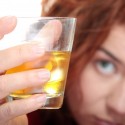Finding Help at Dual Diagnosis Treatment Programs
- Dual diagnosis treatment programs help individuals who have a substance abuse problem as well as a mental illness
- A high percentage of people who abuse drugs or alcohol have been linked to having at least one mental disorder
- Almost thirty percent of people who suffer from a mental disorder begin to use drugs or alcohol at some point in their lives
What is a Dual Diagnosis Treatment Program?
A dual diagnosis treatment program is designed to help individuals overcome a drug or alcohol addiction in addition to helping them cope with a mental disorder such as bipolar or depression.
Getting rid of a drug or alcohol addiction is a hard task on its own but for people who use the drug to help them deal with a mental disorder, such as depression, it can be harder for a person to let go of their addiction. A dual diagnosis treatment program has the resources and medical staff to help a person with their struggles and provide the means for them to come off of the drug of choice while helping them access the right treatment for their mental illness.
How a Dual Diagnosis Treatment Program can help

Dual diagnosis treatment programs can help you get back the life you deserve.
One of the most important aspects of a dual diagnosis treatment program verses a regular treatment center is knowing the difference between the symptoms of the mental illness and the symptoms of the drug addiction. Withdrawal symptoms occur when a person comes off of a drug they are addicted to, but mental illnesses also have their own symptoms and sometimes the symptoms of both illnesses mimic each other. It is important for these symptoms to be treated in a specific way and to be treated differently from one another.
A dual diagnosis treatment program has the knowledge to determine which symptoms are what and can tackle each illness individually rather than treating them as one. It is important for a person suffering from both a mental illness and a drug or alcohol addiction to treat each problem, but going back and forth to each destination that treats each illness separately can be a bit overwhelming.
According to www.nami.org, treatment programs designed for people whose problems are primarily substance abuse are not the best choice for people who also have a mental illness. Regular drug abuse treatment programs tend to be confrontational and can be coercive in nature. Because of this, people with severe mental illnesses may be too fragile to benefit from these programs. Regular substance abuse programs may produce levels of stress that worsen symptoms or cause a person to relapse if a mental illness is present.
A dual diagnosis treatment program eliminates these stressful factors and focuses on each illness separately to help a person slowly get through the detoxing process while helping them accept, understand, and deal with the treatment for their mental illness. A dual diagnosis treatment program is basically a one stop shop for an individual, which has an excellent medical team ready to support and treat both illnesses in one place.

